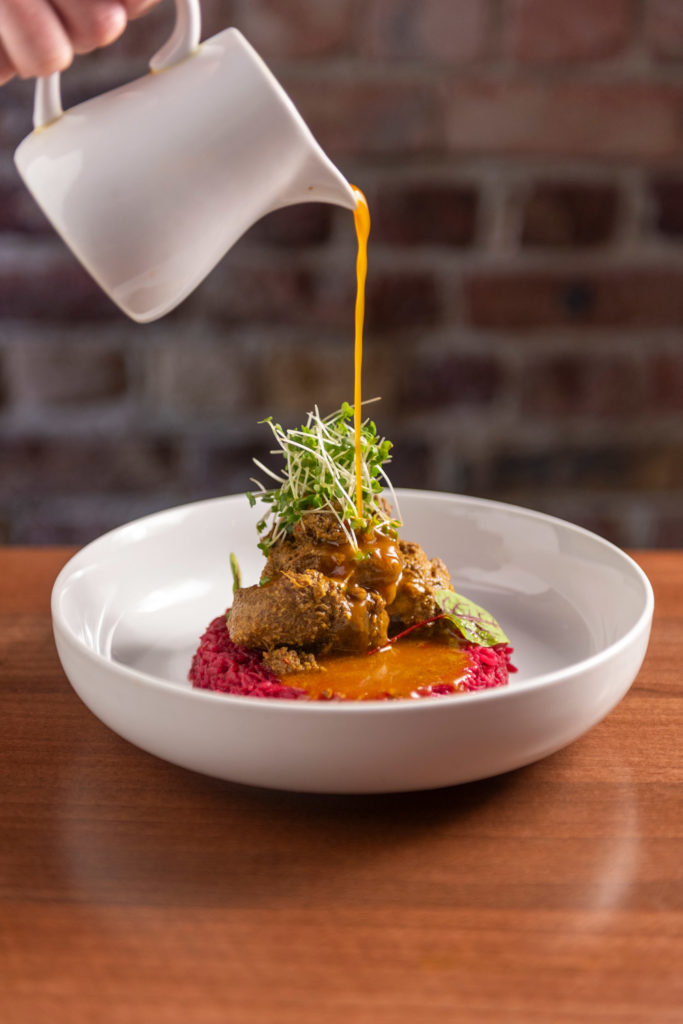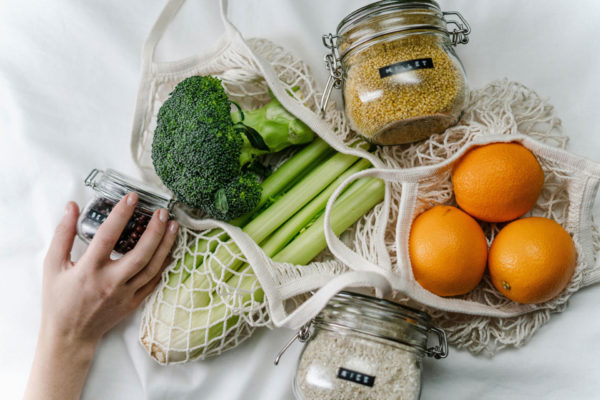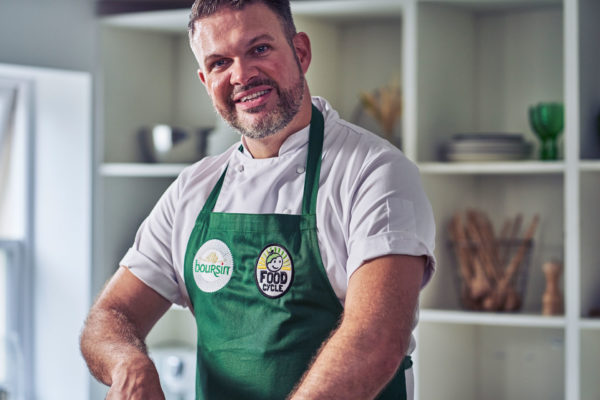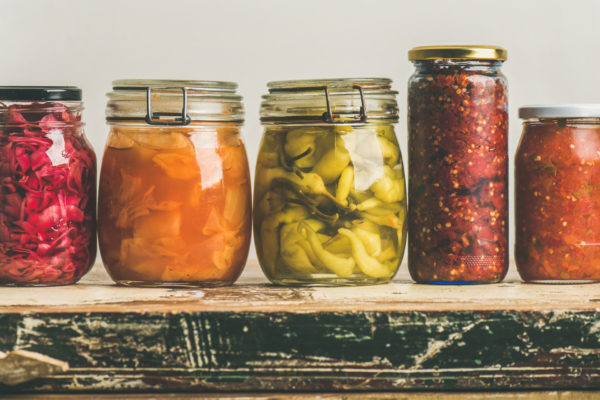Leftovers: This New Book Explores The History Of Food Waste
By
2 years ago
What can history teach us about the future of our food systems?
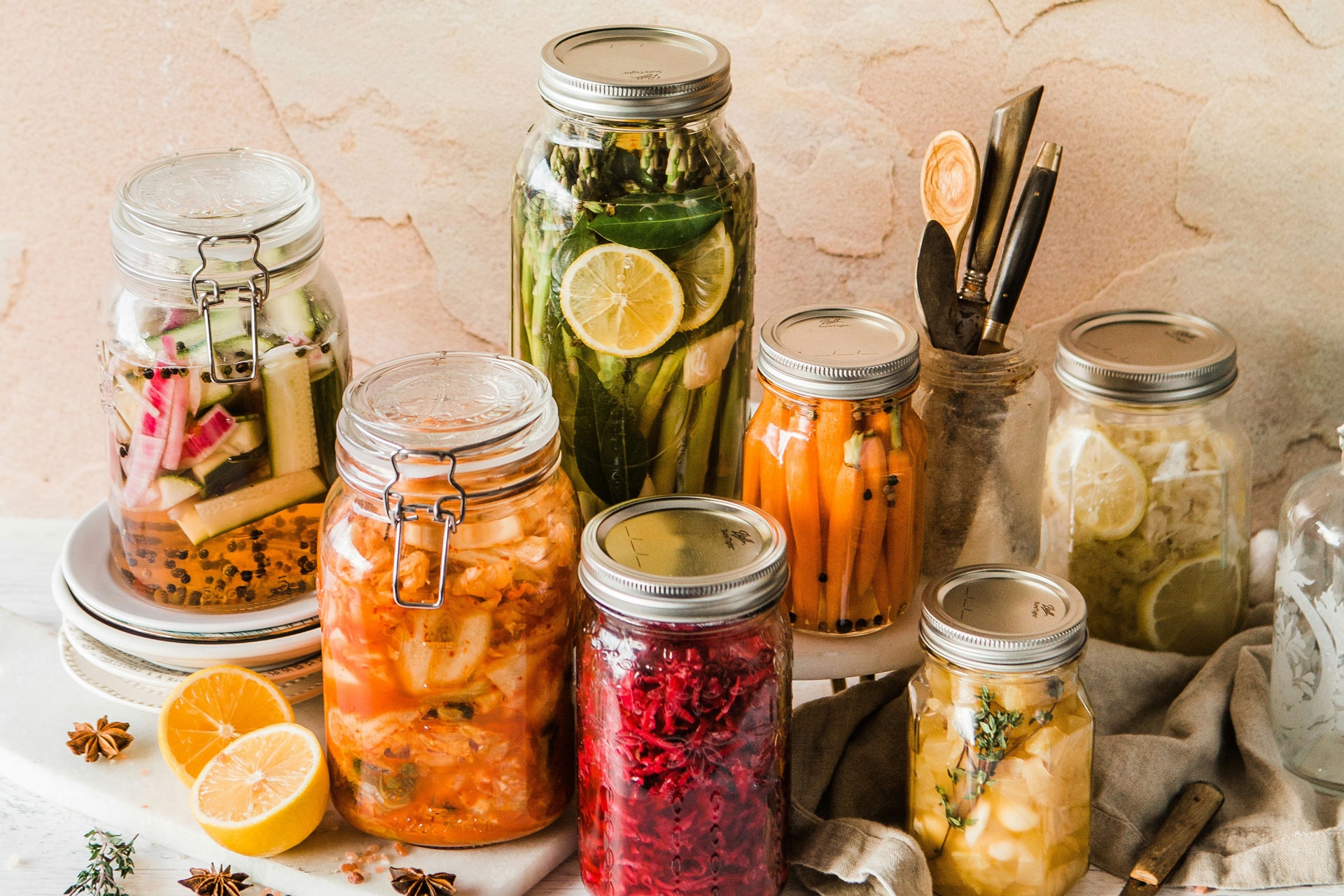
While we all know food waste is a huge problem, it’s fair to say it’s not always the most engaging topic. But historian Eleanor Barnett offers an interesting new angle in her book, Leftovers, which explores the history of food waste and preservation in Britain. She explores the ways our ancestors would extend the life of food, looks at how the Industrial Revolution changed attitudes, delves into the politics of waste in the era of sustainability and much more. Below, we hear some of her findings.
Interview: Eleanor Barnett On Her New Book, Leftovers
What’s the premise of Leftovers?
Leftovers explores the many ingenious ways that our ancestors sought to prevent food from going to waste in Britain, through preservation, using up leftovers in creative dishes, and recycling uneaten food scraps. I ask how food waste has been understood over the past half-millennium and in doing so I open a window on the everyday experiences of ordinary people, showing how themes like religious belief, gender divisions, wealth and inequality, and environmentalism have shaped what we ate (and didn’t eat) in the past right up until the present day!
Why did you decide to write it?
A third of the food we produce globally goes to waste, and when we hear about climate change in the news, stopping food from ending up in the bin is a huge part of the fight against its devastating impacts. Given the importance of the subject today, I was surprised that there’d been very little research on food waste from a historical point of view. In 2015, the UN set a deadline of 2030 to half food waste – time is ticking to reach this target so it seemed that the time was right for a book that explains how we ended up here.
Ultimately I hope that we can learn something from our ancestors about how to manage the current food waste crisis but it’s a history that is complex and interesting in its own right too! What better way to connect to the lives of people in the past than through their food – Leftovers recreates the tastes, smells, and sights of Victorian London, for example, where poor rag-and-bone men scavenged for crumbs and flecks of meat on discarded bones; the striking bursts of sweetness provided as a reward for many sweaty hours spent preserving oranges in the Tudor still-room; and what it was like to taste banana for the first time, as the invention of artificial refrigeration made it possible to transport them to Britain in 1901 all the way from the Canary Islands.
The book goes all the way back to the Tudor era. What were attitudes surrounding food preservation/waste like then?
An important thing that was different than today is that all food was seasonal and most often locally grown and produced. This meant it had to be preserved – Tudor gentlewomen would gather the autumn fruit harvests and make them into delicious sugary preserves to last throughout the barren winter months. The household pig would have been slaughtered in autumn, its blood collected to make blood pudding, hams and bacons cured for later consumption, bones saved in a brine to add flavour to sauces. Even milk was seasonal – today we rely on artificial insemination to get milk all year long – and for this reason it was made into long-lasting cheese.
A religious framework underlined attitudes towards food waste in the Tudor era. Food was understood to be a gift from God that sustained earthly life, so it is no surprise that to waste it was seen as sinful. Preachers taught people to donate any surplus to the poor –the leftover whey from cheese-making could become a drink for a struggling neighbour for example – but of course not everyone practiced what was preached. The wealthy had far more food than they could possibly eat, whilst the poor rioted and gleaned in the fields for any leftover grain that had been missed in the harvest.
Are there any ancient methods/ ideology you learnt about that may be useful for us today?
There’s a whole world of wonderful home preserves that I think we should bring back! In the book I share some delicious historical recipes for things like quince marmalade, Tudor cucumber pickles, or Victorian ‘mango chutney’ (which, adapted from Indian recipes in the British Raj, was then a way of using up surplus apples). In general, we are so used to simply preserving our food in the fridge or freezer that we are missing out on the unique flavours that salting, sugaring, or fermenting imparts.
More broadly I think we need to reconnect with the time-consuming yet rewarding processes of growing, tending, preparing, preserving, and cooking our food so that we value it more and will be less inclined to waste it. Now our food arrives neatly packaged on heaving supermarket shelves, making it easy for us to assume that it’s in boundless supply and in a way that obscures the true labour, energy, and natural resources that go into producing it.
How did the two world wars change things?
War meant food shortages – suddenly, saving food from the bin became a matter of survival on a national level. The state intervened to make wilfully wasting food illegal, enforce rationing, and salvage kitchen waste for the war effort. In peoples’ homes all leftovers were reused in thrifty dishes (stale crusts coated food before it was fried, the water that vegetables were boiled in was reused as soup, etc.), plant pots were requisitioned to grow crops, and home cooks came up with creative ways of substituting missing foods with whatever was available (e.g. ‘murkey’- mock turkey)! Any food that couldn’t be eaten was collected – even to be transformed into explosives!
Post-war, what prompted us to become more wasteful?
After the war the world of food transformed rapidly. Supermarkets and fast food restaurants appeared in the UK, and fridges and freezers made their way into British homes, forging the mass-consumerist society that we are familiar with today. After years of hardship, Britons embraced carefree and abundant consumption. Food waste had doubled in the 1970s compared to pre-war levels.
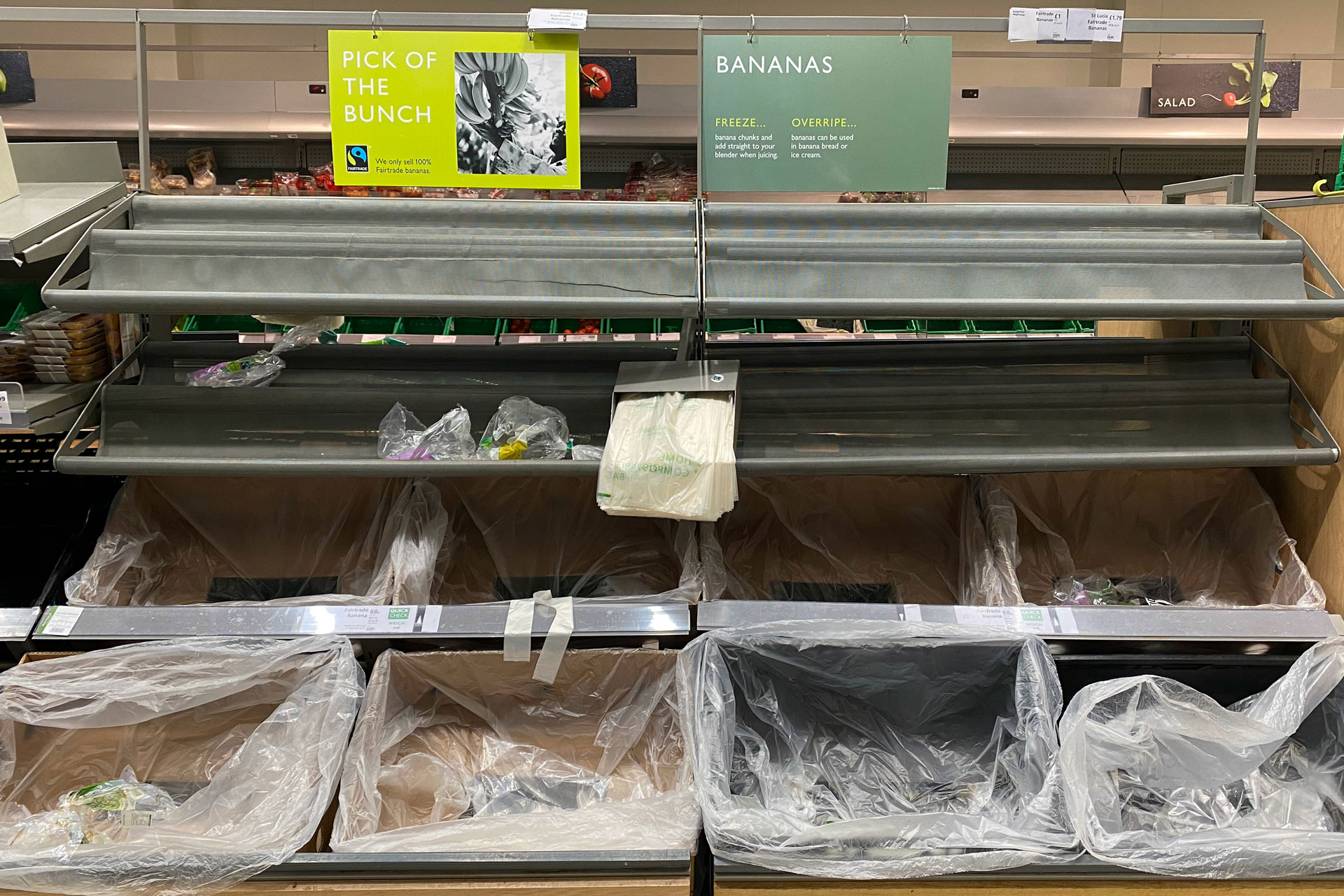
Unsplash
Do you think the pandemic had a positive effect in terms of attitudes towards food waste?
When normally overflowing supermarket shelves were suddenly empty and our favourite eating establishments closed their doors, on an individual level the pandemic reminded us of the value of food, leading us to waste less of it. During the first few months of lockdown we threw away a third less than before the pandemic.
But – perhaps as is human nature when abundance returns – our thriftiness didn’t last long. By 2021 we were back to wasting food at home at pre-pandemic levels. Overall, I’m not convinced that the pandemic had a positive impact on food waste.
Historically, have factors like wealth and inequality shaped perceptions of food waste?
Wasting food is a deeply moral issue because we only waste food when we have a lot of it, while others struggle to make ends meet. In the Tudor era poor people waited at the gates of grand houses for the scraps leftover from elaborate feasts. Hundreds of years later, counter-cultural groups that emerged in the second half of the 20th century, like Food Not Bombs, sought to rescue the perfectly good food discarded by restaurants and supermarkets from bins and give it to the hungry and homeless. Today, food wasted could go towards feeding the 842 million people across the world who are chronically hungry.
How does Britain compare to other countries? Are we doing better/worse on cutting our waste?
A 2015 study put the UK as the highest producer of food waste per capita in Europe, but in 2020 the UK was named the first country to record getting halfway to the UN’s global target of halving food waste by 2030. There have been many successful governmental campaigns to help people waste less at home and 95 percent of food retailers are signed up to the Courtauld Commitment to help reduce food and packaging waste. Still, a quarter of food bought is still wasted in the UK and the amount of household food waste actually increased between 2018 and 2021. Food that ends up in the bin that could have been eaten costs the country £17 billion, that’s about £80 per month for the average family. Reducing food waste is not at the top of government agendas, and promises are often broken and action delayed. In the Summer 2023, for example, the government scrapped legislation that would have required mandatory food waste reporting for all large and medium-sized businesses despite the fact that 80 percent of people consulted approved of the law.
What do you predict for the next 10 years? How will Britain fare on the global waste reduction efforts?
We need strong and committed leadership not just on a national scale but on a global scale if we are going to meet the UN’s goal of halving food waste by 2030; at the moment it’s not looking likely we’ll do so. It can really feel disheartening from an individual point of view but it’s clear that if we make it known that we care about reducing food waste that governments and companies will listen – they don’t want to lose votes or customers.
I’m really excited by the new technologies that seek to better preserve food, stop it going to waste, or recycle it into new products and I explore some of these amazing innovations and their potential to transform the food industry in Leftovers.
Leftovers is out now (Bloomsbury)





